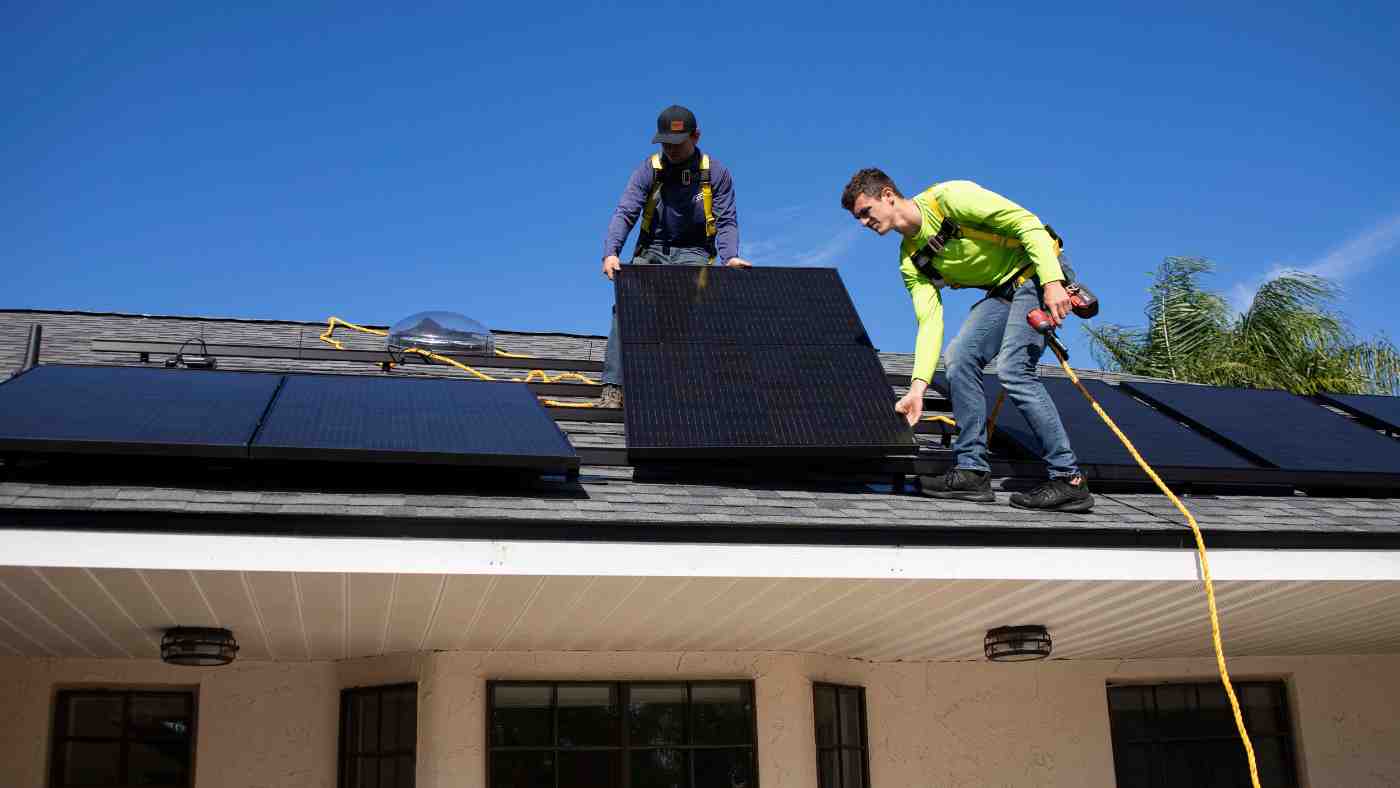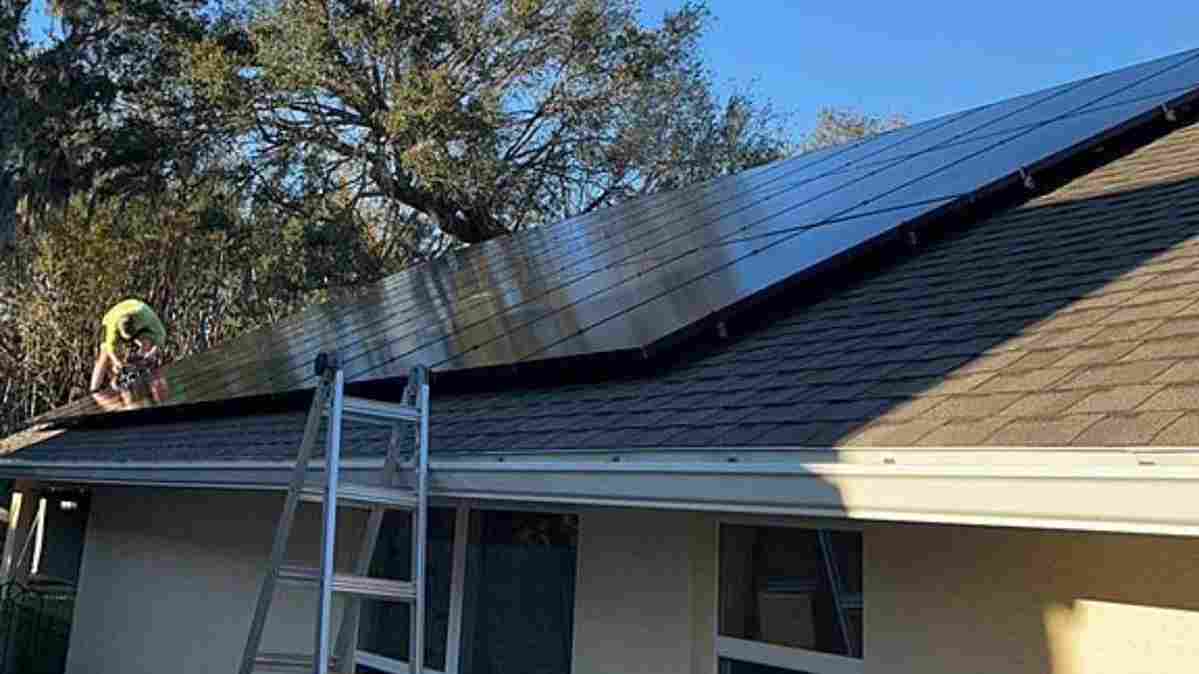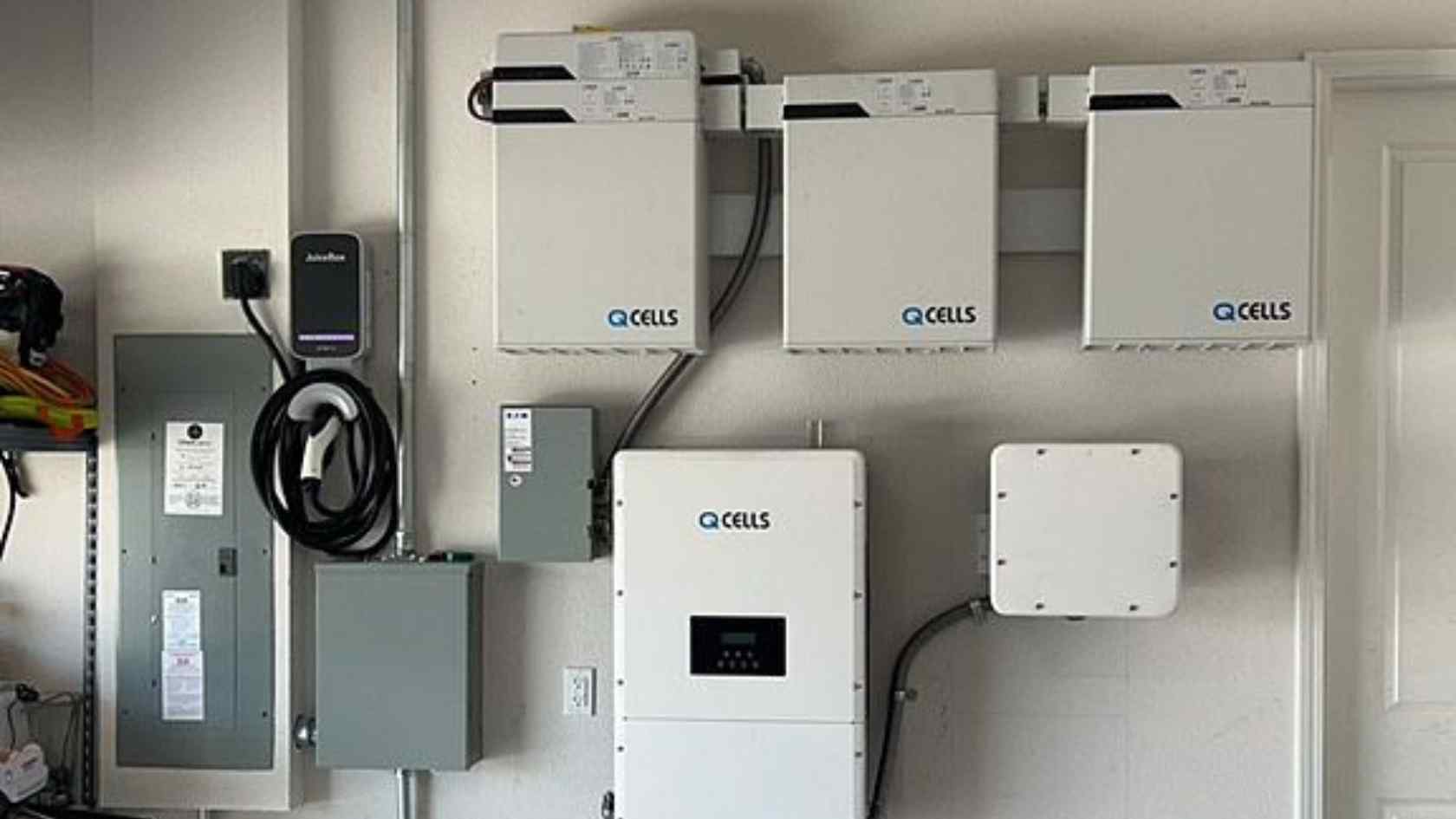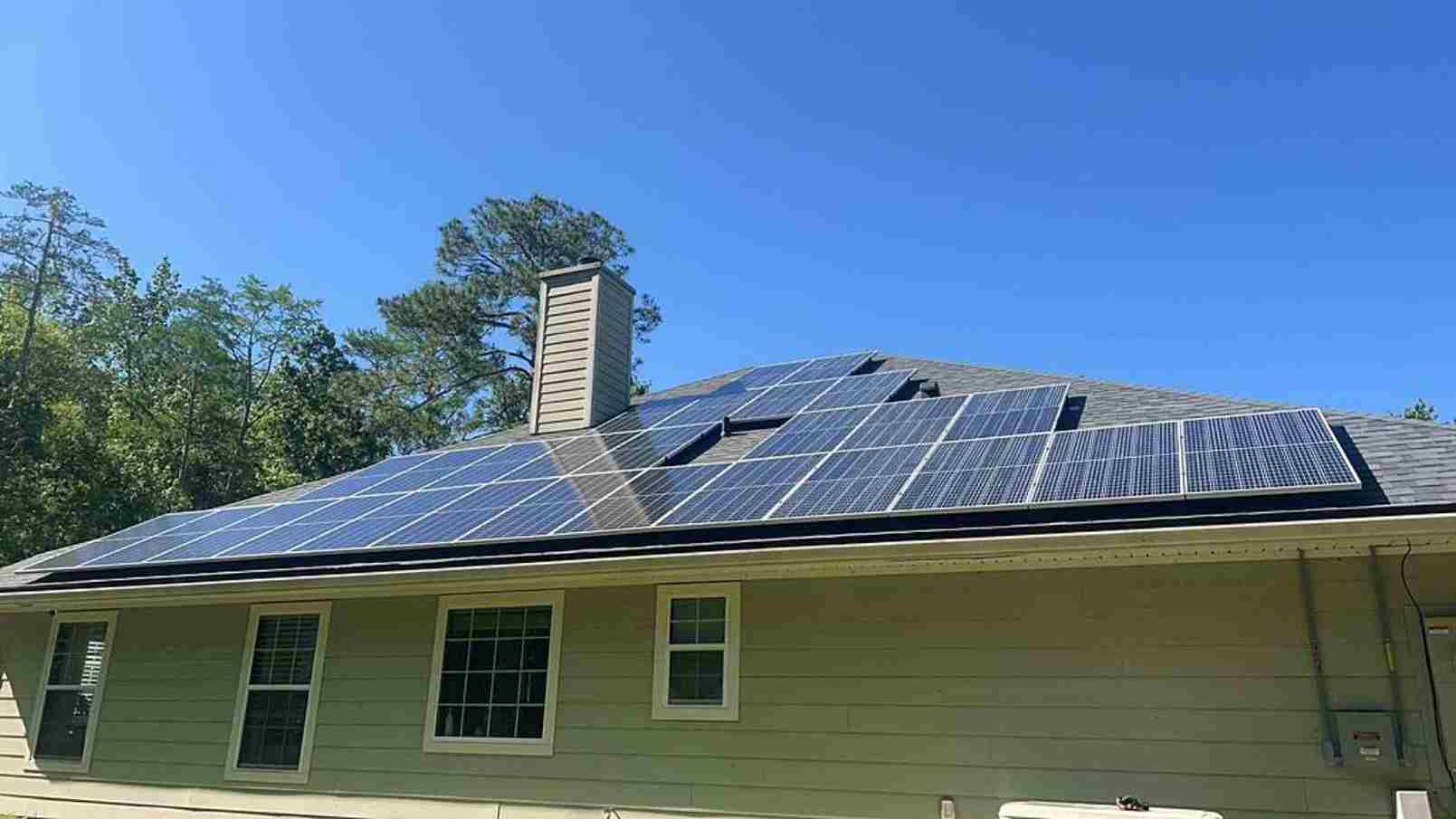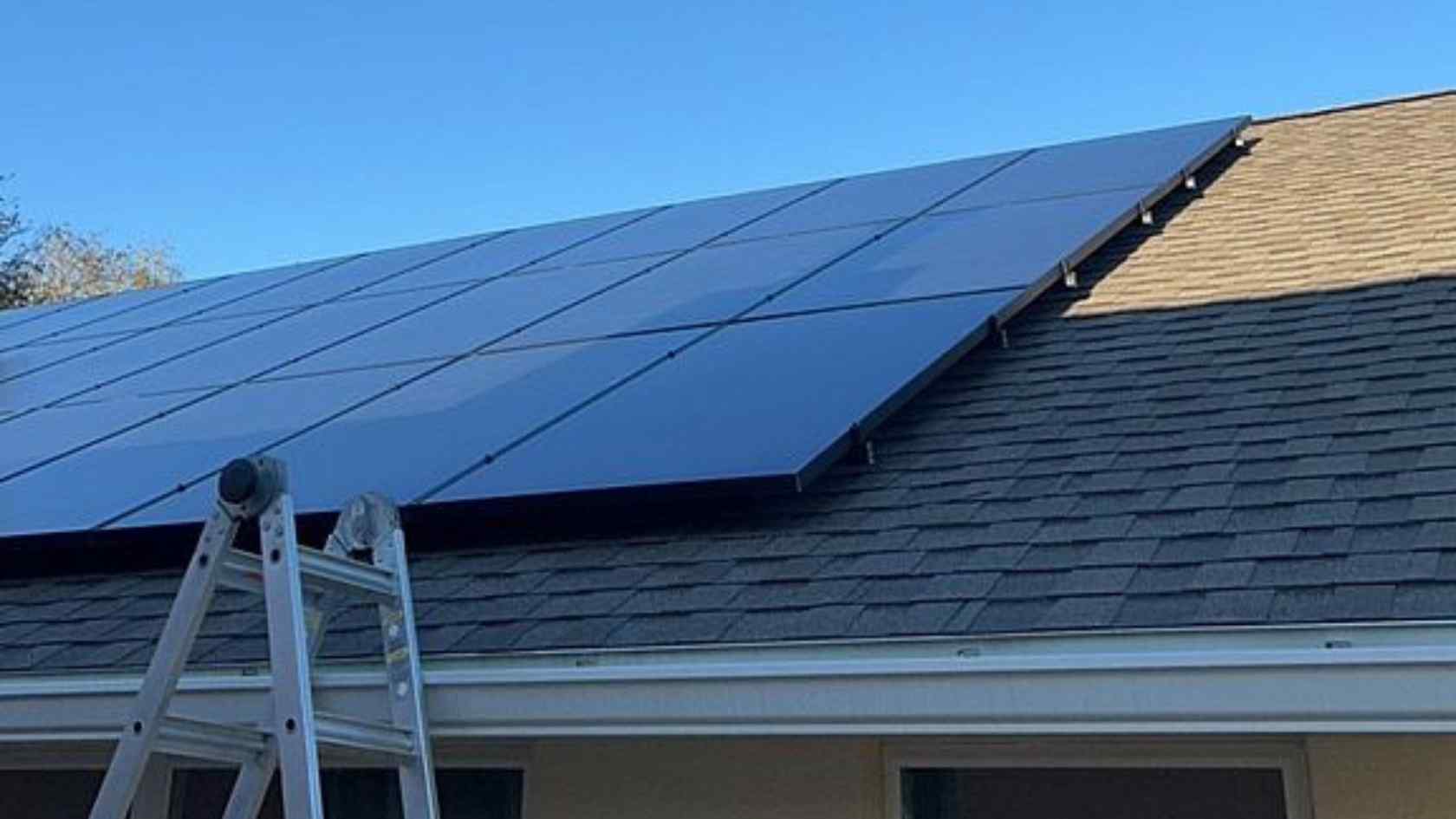Florida homeowners switch to solar for several reasons, like saving money, boosting home value, and helping the environment. Still, they usually have one question in common: is switching to solar panels worth it?
One way to help you determine if solar is right for your home is to calculate the ROI or return on investment of the project. In short, this means what you gain by installing solar panels is more than you spend to install them.
Not knowing exactly how much you will save by installing solar panels is one of the biggest hurdles homeowners will go through when deciding to switch.
But there is good news! One way to think about solar panel ROI is to calculate what’s known as the solar panel payback period. This is the amount of time it takes to save as much on your electric bill as you paid for the solar panel system.
Why Solar Panel ROI Varies
Before we get into calculating the solar panel payback period, it’s important to understand how and why the benefits can vary between homes. This will help you see why calculating solar panel ROI to an exact number is difficult.
What homeowners gain by installing solar panels varies based on a huge number of factors. Roof size, home direction, trees/shading, type of panels installed, electricity needs… the list goes on. Put another way, how much energy your roof can produce with solar panels may not even be close to what your neighbor’s home across the street can.
Local climate can also impact energy production, although Florida homeowners don’t have to worry about this much since we get an above-average amount of sunlight each year. But if you were to compare your Florida solar panel ROI to someone’s in North Dakota, it would be MUCH different.
To further complicate things, calculating your lifetime savings based on rising electricity costs is hard to predict. Based on historical data, we know that utility rates in Florida increase an average of 2-7% per year, but in some years like 2021-2022, Florida homeowners saw massive spikes that caused monthly bills to double. Before switching to solar, it’s important to remember that how much you will save over the lifetime of your system is more likely to be a range and not an exact number.
It’s also worth noting that some solar panel benefits are intangible and don’t have a dollar amount associated with them. If you can’t put a price on helping protect the environment, does that mean you can’t factor it into solar panel ROI?
Knowing that there are many variables that can influence how much you can save when switching to solar is all the more reason to get an estimate from an expert solar installer.
Interested in learning about installing solar panels in Florida? Read our case studies and view our latest projects around St. Augustine and Jacksonville!
How To Calculate Solar Panel Payback Period
Why is using the payback period to calculate solar panel ROI the easiest way to determine if solar is right for your home? It focuses on only the variables you can control: total costs and yearly savings. Here’s how it works:
Start with the total cost of installing the solar panels minus any incentives or rebates you receive. Then divide the remaining cost by yearly electricity savings until you reach your invested amount.
Yearly energy savings is calculated by how much your system will offset your monthly bill. For example, if your monthly energy bill is $200, but solar panels offset 90% of monthly costs, your total monthly savings is $180. Multiply your monthly savings by 12 to get your yearly savings. In this example, that would be $2,160.
Solar Panel Payback Period Example:
System Cost: $30,000
Subtract 30% Solar Tax Credit: $9,000
Total Investment: $21,000
Yearly Energy Savings With Solar: $2,160 (calculated by how much your system will offset your monthly bill – see above)
Total Investment – Yearly Savings = Payback Period: 9.72 years
While this equation is relatively simple, it does not factor in yearly rate increases from utility companies. If energy costs increase after installing solar panels, you’ll save more each year in electricity. Thus your payback period will decrease.
Most solar panel manufacturers today guarantee energy production and efficiency for 25 years. Keep this in mind as you calculate solar panel ROI. Even if it takes 15 years to see a total return on your investment, that still gives you a decade worth of energy savings. Even without factoring in rate increases and using today’s electricity costs, it still amounts to a significant amount of money.
The Average Payback Period For Solar Panels?
Recent studies show that the average solar panel payback period is 8-15 years. Why is there such a big range? It turns out there are several factors that influence the cost of solar panels and the number of years to see a return on investment. Here are the biggest ones:
- Amount of sunlight your roof receives – impacts energy production and savings
- Solar System size – larger systems mean higher upfront cost
- Electricity costs and fees
- Electrical panel upgrades – older homes may need additional equipment
- Tax credits, rebates, and incentives – all vary widely by state
- Net metering rates – each utility company varies
- Solar loan finance rates – rates can impact solar panel payback period
One of the best ways to calculate your solar panel payback period is to get a free solar panel quote. This way, you will know exactly how much energy rooftop solar panels can produce based on your location and the average amount of sunlight. A reputable solar company will also be able to give you options to determine what makes the most financial sense.
Can Tax Credit Increase ROI?
Yes! The solar tax credit can reduce project costs by 30% and lower the payback period making solar an even better home investment. This amounts to $9,000 or more in total savings for most homeowners. Not sure if your home qualifies for the tax credit. Access our free online guide now by clicking here.
Other Benefits That Make Solar Panels Worth It
There are several things homeowners should keep in mind when deciding to switch, like boosting home value or being able to power their homes through an outage. Here’s what to keep in mind when looking at solar panel ROI:
Solar Panels Boost Home Value
Some studies show solar panels increase home value, but the total amount varies by state. For example, Zillow reports that homeowners should expect a 4% increase. Still, a recent survey found that solar increased home values by a whopping 149% in some areas.
Should an increase in home value be the primary reason you switch to solar?
Probably not, especially with how the housing market has fluctuated over the past few years. However, having this information available can alleviate fears of selling your home in the future and being stuck with a monthly solar payment. Should you move after installing solar panels, you can pay off the loan with the added equity at closing.
Environmental Impact
Reducing carbon emissions impacts our environment – less pollution means cleaner air to breathe for everyone. Installing solar panels helps. One home energy system can keep an average of 8,000 lbs of CO2 out of the atmosphere yearly. That’s equivalent to planting 132,281 trees. Unlike monthly energy savings and increased home value, it’s hard to put a dollar value on the environmental impact of solar panels. Still, everyone usually agrees that it’s worth it.
Energy Independence
There’s no denying that a power outage or blackout is annoying, but for some, it can be a life-or-death situation. Those with health conditions or special needs are particularly vulnerable to a lack of power, even if it’s just for a short time. Home solar panels and batteries can help and allow homes to continue to run even if the grid fails. While this may not be a priority for everyone, it can be invaluable to others and is worth considering when thinking about solar panel ROI.
Help Calculating Solar Panel ROI
Calculating your solar panel payback period is one way to determine if switching is worth it. However, getting all the information to calculate it can be complicated. Our experts are here to help! Our solar estimates include reviewing your roof, home, and energy bills to get as much information on the variables that could impact solar panel ROI. This gives you all the information needed to make an informed decision! Plus, it’s 100% free.
Have questions or need more information? The experts at Raze Solar are here to help! Call or text (904) 595-6835, schedule a free solar panel quote online, or view our services areas and learn how to make the switch.
Learn more about our solar energy company and see recent projects by following us on Facebook and Instagram.

